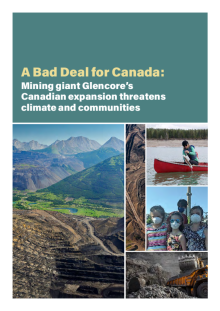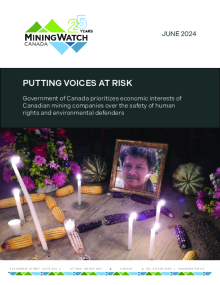New Report Sounds Alarm Over Sale of Teck Resources’ B.C. Coal Mines to Glencore
Swiss mining giant’s poor ESG record not reflected in federal government’s approval
(Ottawa, Monday, July 22, 2024) A new report gives cause for concern over Teck's July 4 sale of Elk Valley Resources (EVR) and its massive B.C.

